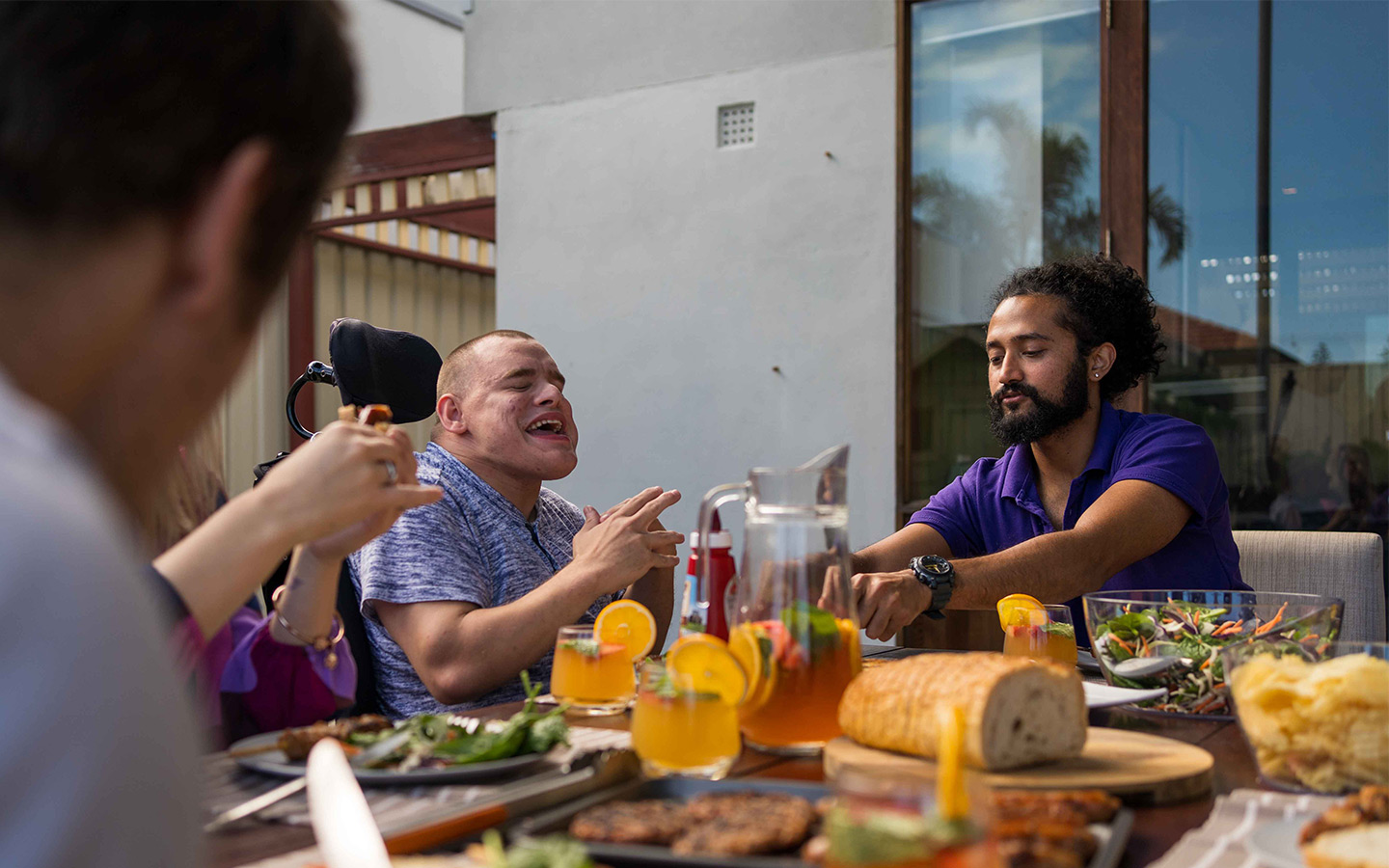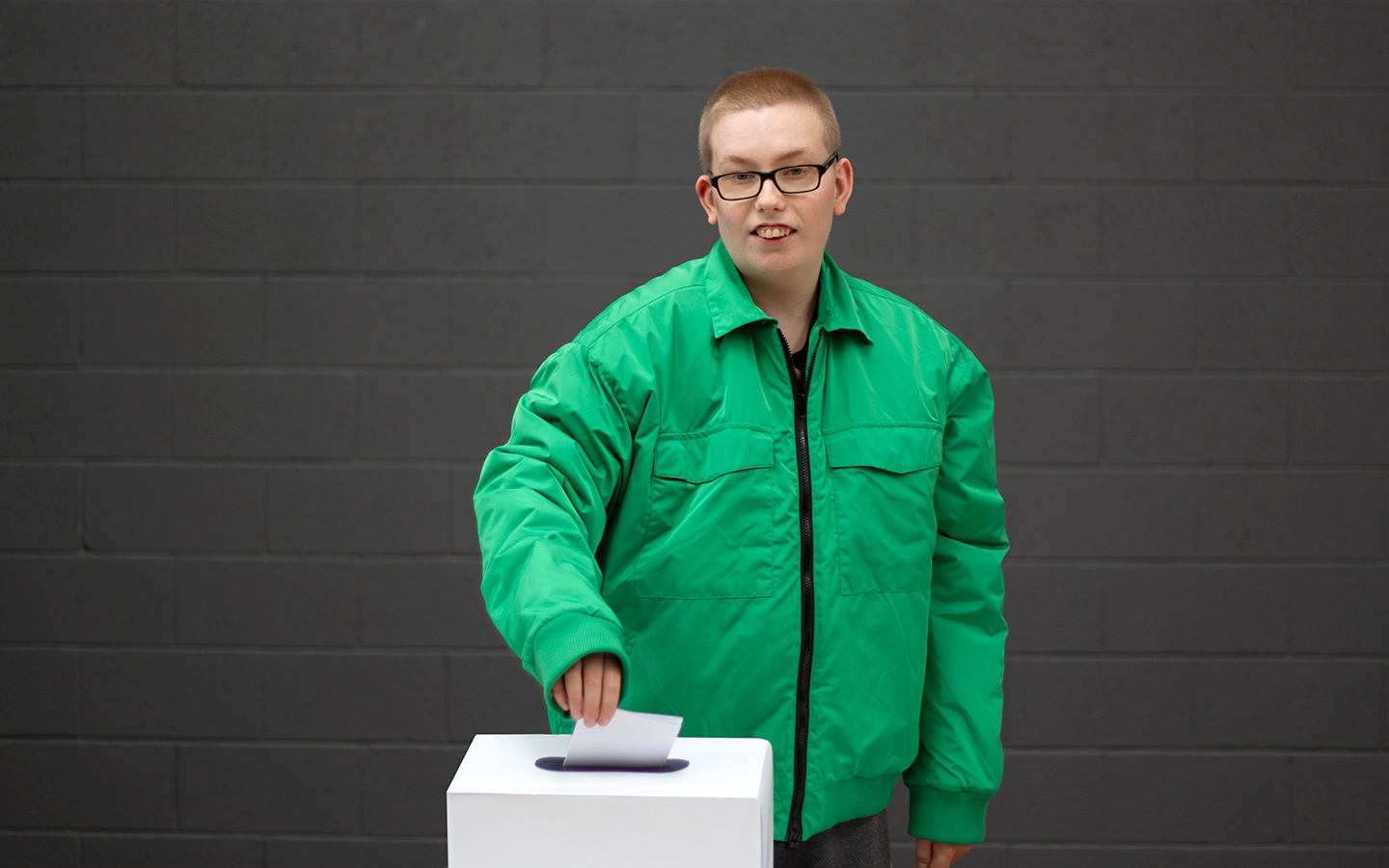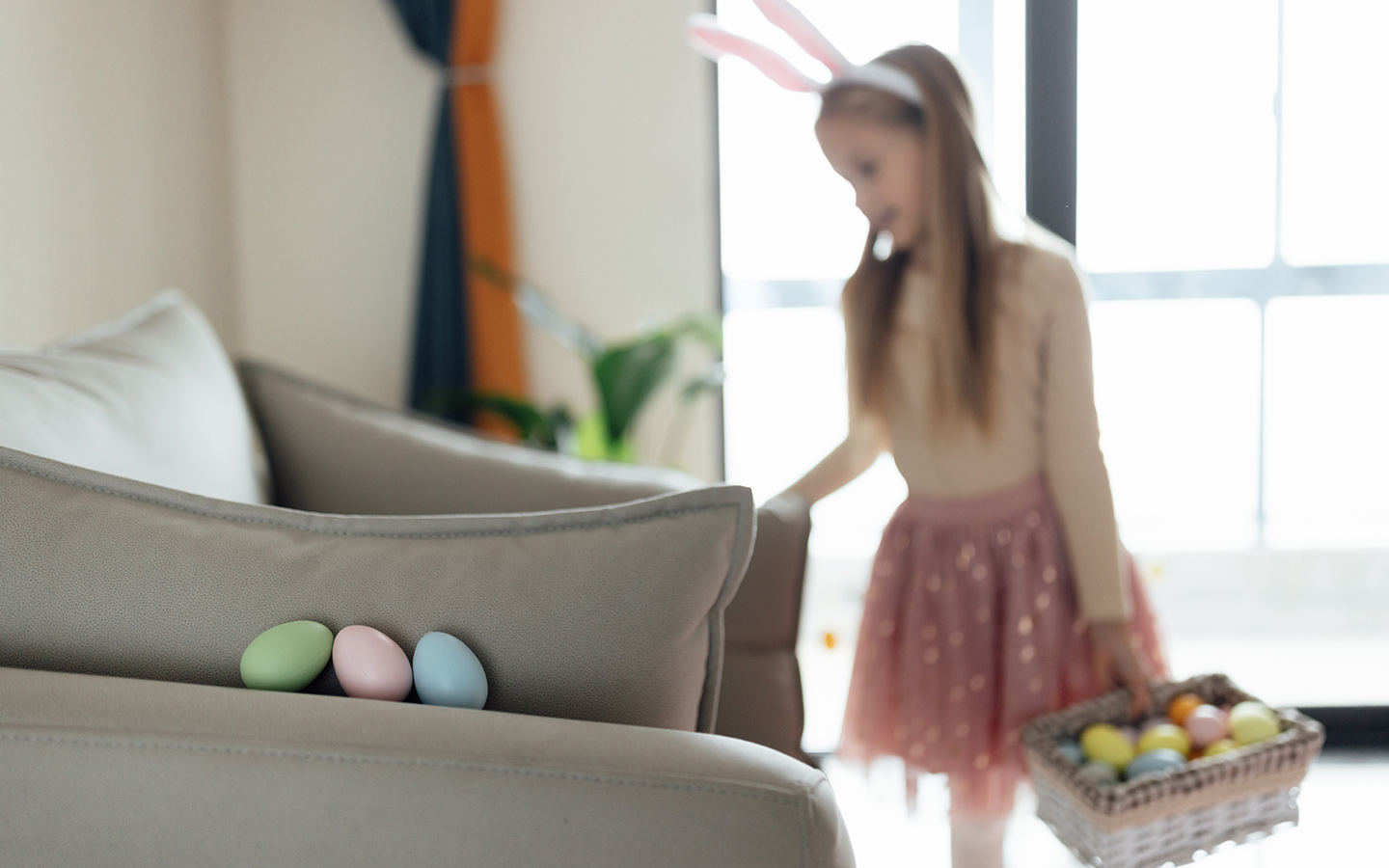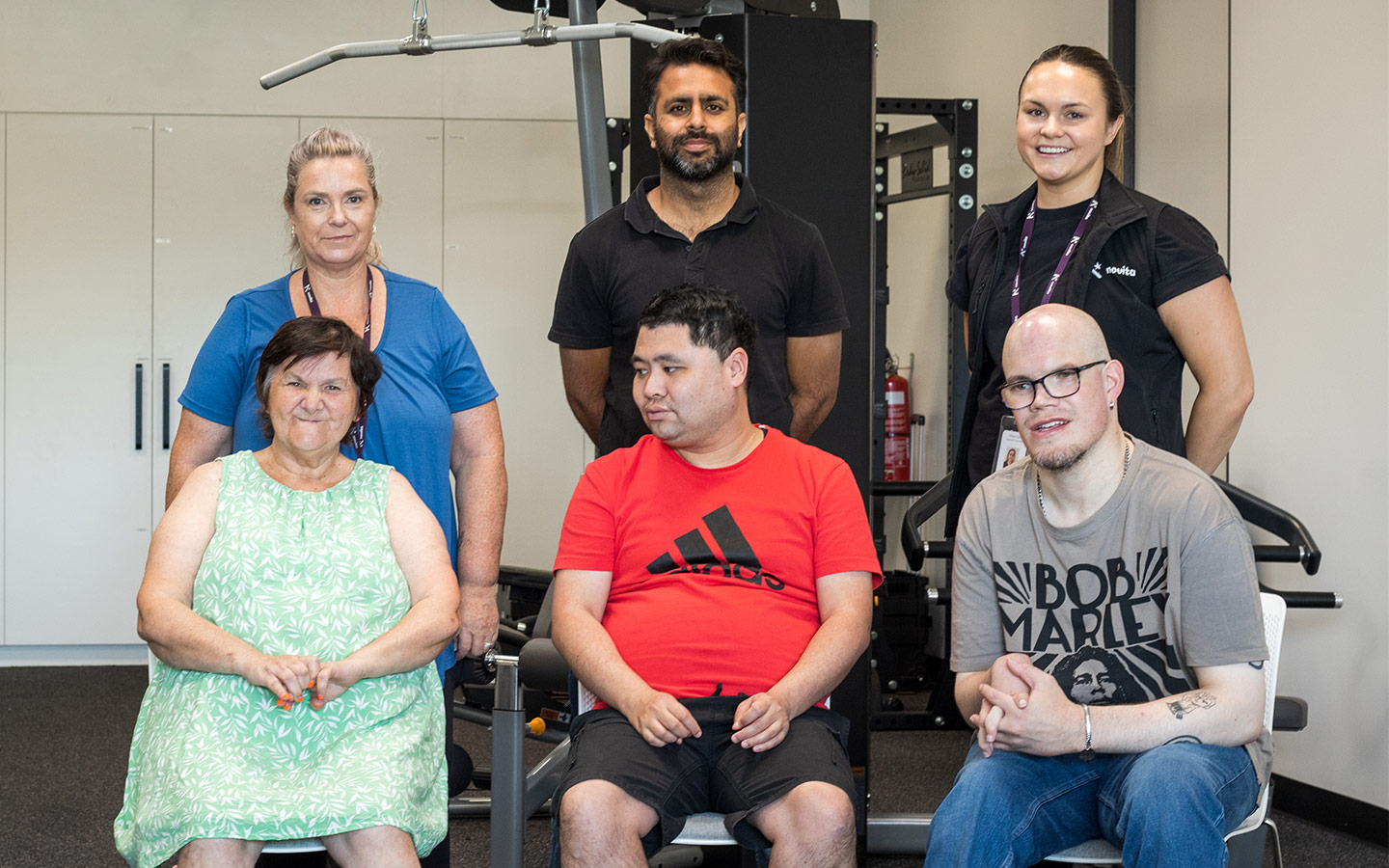Helpful Information
How to find the right specialist disability accommodation (SDA) for you
access_time20min read

Looking for your next home? Read our guide to finding SDA that fits you!
Once you have been approved for SDA funding, it is time to start looking for accommodation that suits you. From accessibility, location and proximity to family, there are many things to consider when looking at housing options. In this guide, we talk you through important information to consider, types of housing available, and steps to follow when finding your new home. But first, what is specialist disability accommodation (SDA)?
SDA is a specific category of housing in Australia designed to provide suitable living arrangements for people with significant and permanent disabilities. SDA is funded by the National Disability Insurance Scheme (NDIS), aimed at supporting individuals with disabilities working towards independent living.
SDA refers to housing that has been purpose-built or modified to meet the unique needs of people with disabilities.
This includes physical disabilities, intellectual disabilities, sensory impairments, and other complex support needs. SDA is not just about accessible housing; it goes beyond that to include features and design elements that cater to the specific needs of the residents. It offers people with disability more choice and control over where they want to live.
Eligibility for SDA is determined based on a person’s specific disability-related needs and their NDIS plan. You will need a therapist to assess your eligibility for SDA, and if approved, funding is provided to support the cost of living in such accommodation. SDA providers offer SDA options to eligible NDIS participants.
Below we’ve outlined the steps to find SDA housing that suits you:
1. Obtaining and understanding your funding
Funding for Specialist Disability Accommodation (SDA) in Australia is typically provided through the National Disability Insurance Scheme (NDIS). To secure funding for SDA, you need to meet certain eligibility criteria and go through an assessment process. This criteria includes information on:
- Mobility – you have issues walking, climbing stairs, getting in and out of bed or a chair, carrying or moving items and leaving the house,
- Self-care – you have issues washing yourself, going to the toilet, getting dressed, eating, drinking, talking and taking your medication,
- Self-management – you have issues with housework, following routines, making friends, forming relations, maintaining boundaries and managing your behaviour.
You will then need to provide evidence that SDA will support you to work towards your living goals and needs. Evidence will need to include:
- A housing goal included within your NDIS plan
- Participant housing statement
- A functional capacity assessment (an evaluation to assist in ensuring you have access to the right support usually conducted by an Allied Health professional)
- A completed home and living supporting evidence form (a form designed to give more information about your home and living support needs)
2. Determining your needs
When finding a house, there are many steps you need to consider before fully committing. Determining which specialist disability accommodation (SDA) is the right fit for you involves careful consideration of your individual needs, preferences, and goals.
The first step is to familiarise yourself with the four design categories of SDA housing
- Improved liveability: housing with better physical access. It also has more features for people with sensory, intellectual or cognitive impairments. For example, you may need walls and floors that are very easy to see, living areas that mean your support workers can see you easily, or very few stairs in your home.
- Fully accessible: housing with a high level of physical access features for people who have lots of physical challenges. For example, you need to use a manual or powered wheelchair at home or you can’t use steps.
- Robust: housing that is very strong and durable, reducing the need for repairs and maintenance. The way it is built should make it safe for you and others. This type of design category may suit people who need help managing complex and challenging behaviours. We think about how often you currently cause property damage, and the extent of the damage.
- High physical support: housing that includes a high level of physical access for people who need very high levels of support. For example, you may need a ceiling hoist, backup power supply, or home automation and communication technology.
(Information sourced from the NDIS)
3. Spend a night away in respite to see what it’s like living away from home
Before you make the big decision, we recommend spending a night or two away from home – this is otherwise known as ‘respite’.
Respite is a service that provides ‘home away from home’ for people with disability. It can provide the opportunity for family members and carers to have a break. Specifically, respite involves spending some quality time away from home with assistance from a support worker – in short-term accommodation.
Benefits of respite accommodation include:
- Allowing clients to work towards lifestyle goals (e.g.) learning new skills, or socialising with new people,
- Allowing family and friends to have a much-needed break from caring and support
- Allowing for visitor’s that normally may not be able to visit due to complex needs of the client
Novita’s respite service supports people with disability and their primary care givers by giving them both a break for a specified time. Clients can access respite care for a few hours, a few days, or longer – depending on their needs. Novita offers respite accommodation in locations around South Australia to offer clients a home away from home where convenient. Respite is typically planned well in advance. For example, if you know your primary carer is attending an appointment going on a short trip, you can pre-plan your Respite service. Notably, Respite is also available in emergencies, i.e., if your carer has an unplanned trip to the hospital, for example.
4. Finding a property
When you’re ready, SDA providers like Novita Housing can offer a range of services to help you find an accommodation option that meets your specific needs and allows you to work towards goals of living more independently
From the very start of this important journey, Novita Housing will work closely with you to explore a range of accommodation options that reflect your preference of location, closeness to family, accessibility, living environment, functionality, proximity to local services and transportation, and anything else that is important to you.
Novita Housing has a range of homes suitable for people living alone or with family, friends or other people with a disability, including SDA compliant homes. You can choose to rent a home or just a bedroom in a shared house if you prefer.
They understand that one size does not fit all, and the choice of housing is a very personal decision.
For more information about the houses, services and support that is offered by Novita Housing, click here.
How Novita can help if you don’t have SDA funding
If you have home and living included as part of your NDIS plan, Novita can support you with SIL (i.e., improving living skills, money and household management, social and communication skills and behavioural management), home modification to your own home, support with personal care, tasks in the home (which are limited due to your disability), respite and finding and maintaining suitable housing. For more information about our supports, click here.
The best way to figure out if a house is right for you is to see it in person with a support worker or with the assistance of your support network (i.e., family and friends). Remember, you have choice and control in where you want to live, so you should be sure of your decision before getting the keys. When visiting potential homes, you should consider the following:
- Location – your ideal home should be near your support network and amenities. When choosing accommodation, you should consider if the property is also near public transport, medical facilities, shopping centres and where you receive support. If any of these are lacking, and you find yourself feeling lost or isolated, the location is probably not right for you.
- Space and surroundings – you will know straight away if a home is too small or crowded for your needs. Consider the importance of your living environment and see whether you can visualise your furniture and belongings within it. If it is too small, has too many stairs, not enough windows, or anything else that could affect your accessibility needs, you might want to look for another property.
- Check the reviews – knowing what others have been saying about a property or SDA provider is a great way to find out whether you want to live there. If a home is flagged because it is unsafe or not very accessible, it’s best to know before you invest the time and financial effort into signing any contracts.
- Accessibility – an accessible property should be designed to meet any mobility or physical needs. This could include wider doorways and entry ways for wheelchair access, ramps, reachable power sockets and light switches as well as grab bars in the shower and bathroom.
Ready to collect the keys?
We’re here to help. To get started, contact our Customer Experience team on 1300 668 482 or [email protected]


